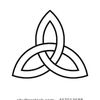26.3.2013 | 11:42
Hugleišingar Thomas Nagel um efnishyggju Žróunarsinnans
 Ég hef fjallaš įšur stuttlega um Thomas Nagel, sjį: Virtur gušleysingi yfirgefur hiš sökkvandi skip darwinisma
Ég hef fjallaš įšur stuttlega um Thomas Nagel, sjį: Virtur gušleysingi yfirgefur hiš sökkvandi skip darwinisma
Ég er ķ vandręšum meš žetta enska hugtak "materialist", bein žżšing er efnishyggja en žaš er aš gefa til kynna einhvern sem er ašeins meš hugan viš efnislega hluti eins og flottan bķl og ķbśš. Efnishyggja er samt oršiš sem er notaš į wikipedia, sjį:http://is.wikipedia.org/wiki/Efnishyggja
Hugtakiš aftur į móti sś afstaša aš žaš eina sem er til ķ heiminum er hiš efnislega. Sem sagt, enginn Guš eša eitthvaš yfirnįttśrulegt. Svo, ef einhver er meš eitthvaš betra orš yfir žetta, endilega lįttu mig vita.
Mig langar aš benda į nokkuš sem Nagel sagši ķ bók sinni um gušleysis efnishyggju:
Thomas Nagel's Mind & Cosmos
If the materialist, neo-Darwinian orthodoxy contradicts common sense, then this is a mark against the orthodoxy, not against common sense. When a chain of reasoning leads us to deny the obvious, we should double-check the chain of reasoning before we give up on the obvious.
[T]he materialist assumption works really, really well -- in detecting and quantifying things that have a material or mechanistic explanation. Materialism has allowed us to predict and control what happens in nature with astonishing success. The jaw-dropping edifice of modern science, from space probes to nanosurgery, is the result.
But the success has gone to the materialists' heads. From a fruitful method, materialism becomes an axiom: If science can't quantify something, it doesn't exist, and so the subjective, unquantifiable, immaterial "manifest image" of our mental life is proved to be an illusion.
Here materialism bumps up against itself. Nagel insists that we know some things to exist even if materialism omits or ignores or is oblivious to them. Reductive materialism doesn't account for the "brute facts" of existence -- it doesn't explain, for example, why the world exists at all, or how life arose from nonlife. Closer to home, it doesn't plausibly explain the fundamental beliefs we rely on as we go about our everyday business: the truth of our subjective experience, our ability to reason, our capacity to recognize that some acts are virtuous and others aren't. These failures, Nagel says, aren't just temporary gaps in our knowledge, waiting to be filled in by new discoveries in science. On its own terms, materialism cannot account for brute facts. Brute facts are irreducible, and materialism, which operates by breaking things down to their physical components, stands useless before them. "There is little or no possibility," he writes, "that these facts depend on nothing but the laws of physics."
It can perform calculus, hypothesize metaphysics, compose music -- even develop a theory of evolution. None of these higher capacities has any evident survival value, certainly not hundreds of thousands of years ago when the chief aim of mental life was to avoid getting eaten. Could our brain have developed and sustained such nonadaptive abilities by the trial and error of natural selection, as neo-Darwinism insists? It's possible, but the odds, Nagel says, are "vanishingly small." If Nagel is right, the materialist is in a pickle. The conscious brain that is able to come up with neo-Darwinism as a universal explanation simultaneously makes neo-Darwinism, as a universal explanation, exceedingly unlikely.
As a philosophy of everything [materialism] is an undeniable drag. As a way of life it would be even worse. Fortunately, materialism is never translated into life as it's lived. As colleagues and friends, husbands and mothers, wives and fathers, sons and daughters, materialists never put their money where their mouth is. Nobody thinks his daughter is just molecules in motion and nothing but; nobody thinks the Holocaust was evil, but only in a relative, provisional sense. A materialist who lived his life according to his professed convictions -- understanding himself to have no moral agency at all, seeing his friends and enemies and family as genetically determined robots -- wouldn't just be a materialist: He'd be a psychopath.
Eitthvaš segir mér aš žaš er aš koma flóšbylgja af gušleysingjum sem eru aš fara aš yfirgefa žessa órökréttu hugmyndafręši sem stenst ekki alvöru ķhugun.
Meginflokkur: Trśmįl og sišferši | Aukaflokkar: Heimspeki, Trśmįl | Facebook
Um bloggiš
Mofa blogg
Fęrsluflokkar
- Bloggar
- Bækur
- Dægurmál
- Ferðalög
- Fjármál
- Fjölmiðlar
- Heilbrigðismál
- Heimspeki
- Íþróttir
- Kjaramál
- Kvikmyndir
- Lífstíll
- Ljóð
- Löggæsla
- Mannréttindi
- Matur og drykkur
- Menning og listir
- Menntun og skóli
- Samgöngur
- Sjónvarp
- Spaugilegt
- Spil og leikir
- Stjórnmál og samfélag
- Sveitarstjórnarkosningar
- Tónlist
- Trúmál
- Trúmál og siðferði
- Tölvur og tækni
- Umhverfismál
- Utanríkismál/alþjóðamál
- Vefurinn
- Viðskipti og fjármál
- Vinir og fjölskylda
- Vísindi og fræði
Tenglar
Kristnar sķšur
Żmislegt
Sköpun/žróun
Sķšur sem fjalla um sköpun/žróun
- Detecting Design
- UnCommon descent Blogg sķša William Dembski um vitręna hönnun
- Creation-Evolution Headlines Sķša sem fjallar um fréttir tengdar sköpun žróun
- EvolutionNews Sķša sem fjallar um fréttir sem tengjast Vitsmunahönnun
Bloggvinir
- Bergur Thorberg
- Birgirsm
- Brosveitan - Pétur Reynisson
- Bryndís Böðvarsdóttir
- Daníel Þór Þorgrímsson
- Davíð S. Sigurðsson
- Davíð Örn Sveinbjörnsson
- Daði Einarsson
- Dóra litla
- Eva
- Eygló Hjaltalín
- Friðrik Páll Friðriksson
- Georg P Sveinbjörnsson
- Gladius
- Gunnar Ingi Gunnarsson
- Gunnlaugur Halldór Halldórsson
- Guðni Már Henningsson
- Guðrún Sæmundsdóttir
- Guðsteinn Haukur Barkarson
- Gísli Kristjánsson
- Halldóra Hjaltadóttir
- Halldóra Lára Ásgeirsdóttir
- Hjalti Rúnar Ómarsson
- Hörður Finnbogason
- Hörður Halldórsson
- Inga Helgadóttir
- Ingibjörg
- Ingvar Leví Gunnarsson
- Ingvar Valgeirsson
- Janus Hafsteinn Engilbertsson
- Jens Sigurjónsson
- Jóhann Hauksson
- Jóhann Helgason
- Jóhannes Ólafsson Eyfeld
- Jón Hjörleifur Stefánsson
- Jón Ríkharðsson
- Jón Valur Jensson
- Jónatan Gíslason
- Júdas
- Kristin stjórnmálasamtök
- Kristinn Theódórsson
- Kristinn Theódórsson
- Kristinn Ásgrímsson
- Linda
- Mama G
- Morgunstjarnan
- Nonni
- Omnivore
- Predikarinn - Cacoethes scribendi
- Pétur Eyþórsson
- Ragnar Birkir Bjarkarson
- Ragnar Kristján Gestsson
- Ragnar Steinn Ólafsson
- Ragnheiður Katla Laufdal
- Róbert Badí Baldursson
- Rósa Aðalsteinsdóttir
- Rödd í óbyggð, kristilegt félag
- Röddin
- Rúnar Kristjánsson
- Sigurður Þórðarson
- Sigvarður Hans Ísleifsson
- Steinar Immanúel Sörensson
- Styrmir Reynisson
- Svanur Gísli Þorkelsson
- Sverrir Halldórsson
- TARA
- TARA ÓLA/GUÐMUNDSD.
- Theódór Norðkvist
- Tryggvi Hjaltason
- Tímanna Tákn
- Unknown
- Vefritid
- Viðar Freyr Guðmundsson
- gudni.is
- Ólafur Jóhannsson
- Þarfagreinir
- Þórdís Ragnheiður Malmquist
- Alexander Steinarsson Söebech
- Árni Karl Ellertsson
- BookIceland
- Elísa Elíasdóttir
- Fanney Amelía Guðjonsson
- Friðrik Már
- Gestur Halldórsson
- Guðjón E. Hreinberg
- Gunnar Ingvi Hrólfsson
- Gunnar Jóhannesson
- Hulda Þórey Garðarsdóttir
- Jens Guð
- Karl Jóhann Guðnason
- Kristinn Ingi Jónsson
- Lífsréttur
- Mathieu Grettir Skúlason
- Tómas Ibsen Halldórsson
- Valur Arnarson
- Viktor
- Vilhjálmur Örn Vilhjálmsson
Heimsóknir
Flettingar
- Ķ dag (12.7.): 0
- Sl. sólarhring: 1
- Sl. viku: 18
- Frį upphafi: 0
Annaš
- Innlit ķ dag: 0
- Innlit sl. viku: 6
- Gestir ķ dag: 0
- IP-tölur ķ dag: 0
Uppfęrt į 3 mķn. fresti.
Skżringar






Bęta viš athugasemd [Innskrįning]
Ekki er lengur hęgt aš skrifa athugasemdir viš fęrsluna, žar sem tķmamörk į athugasemdir eru lišin.